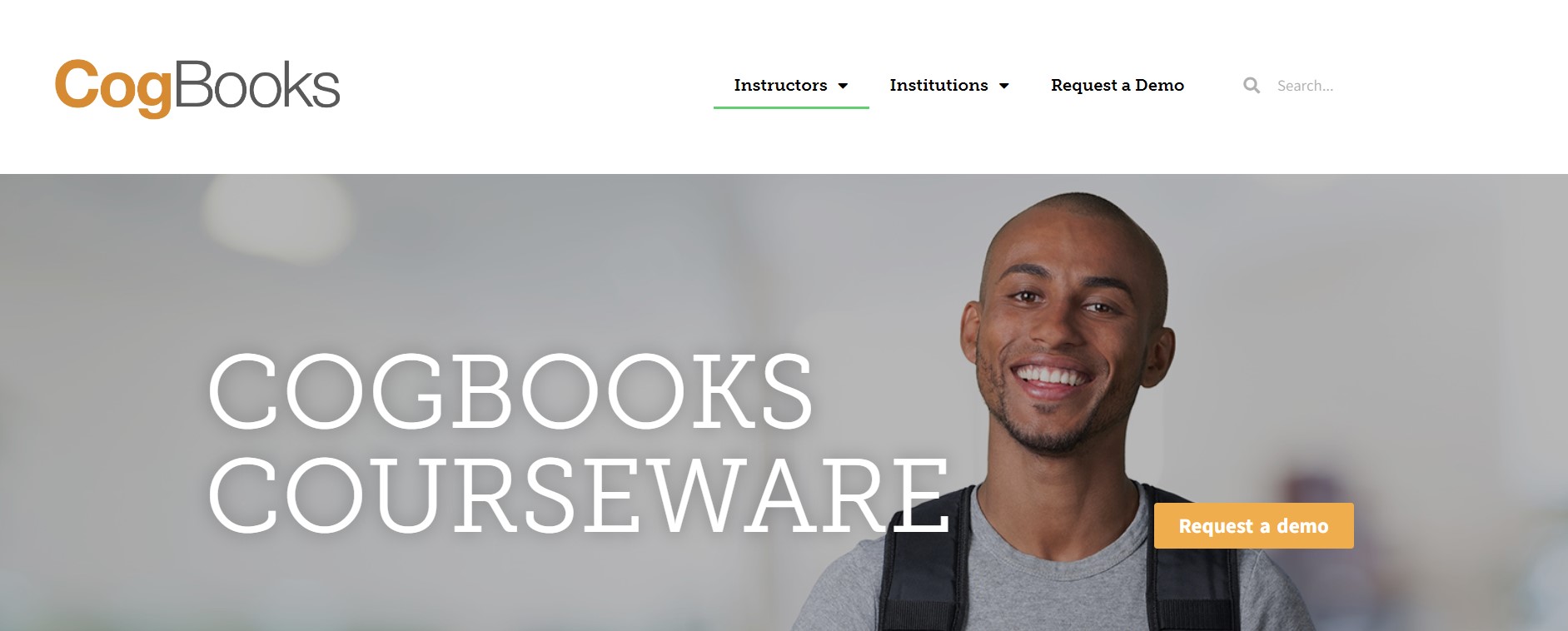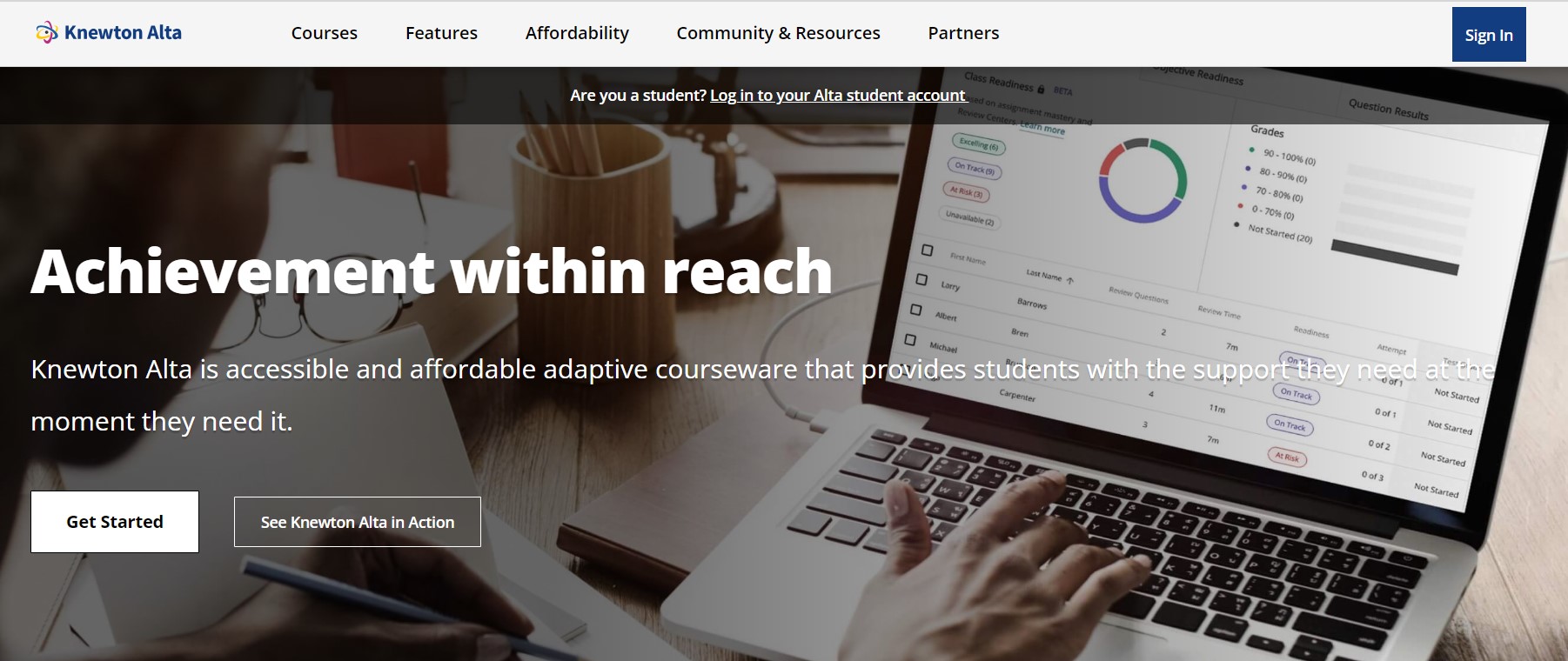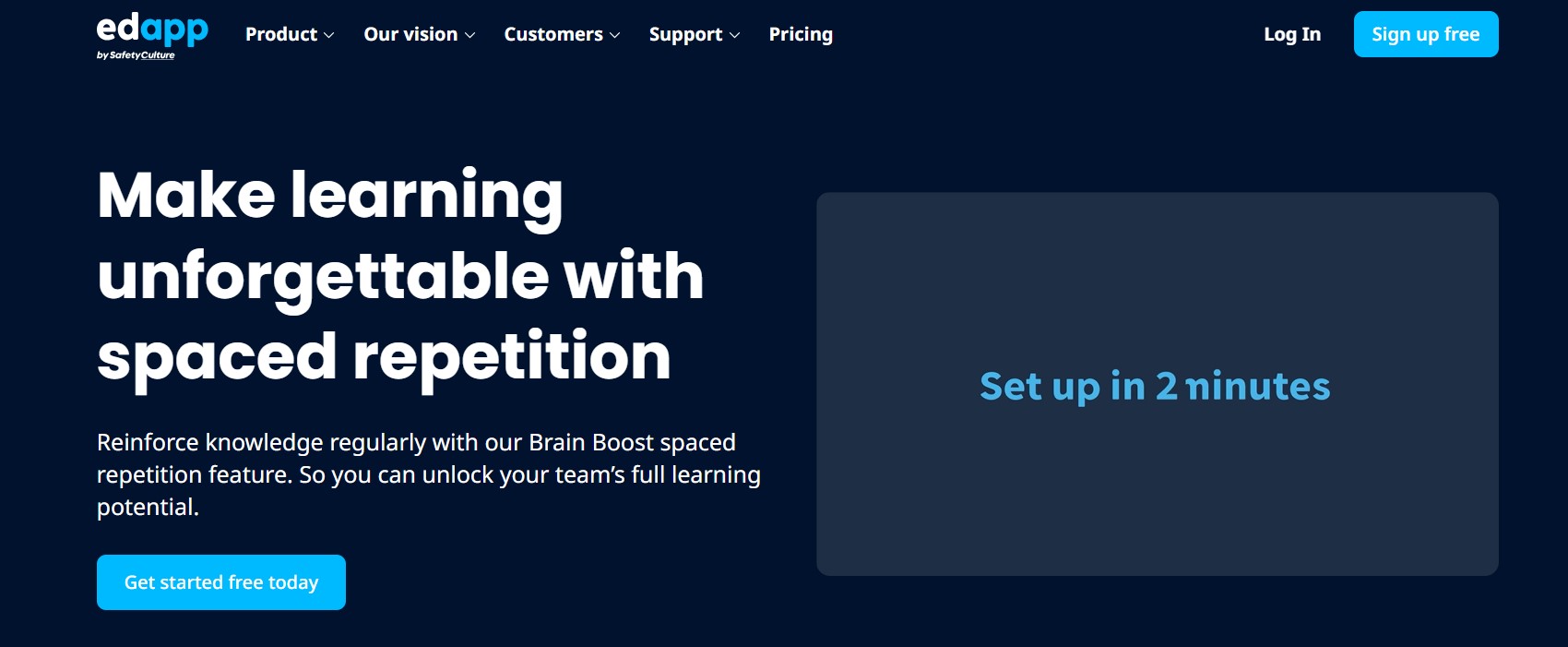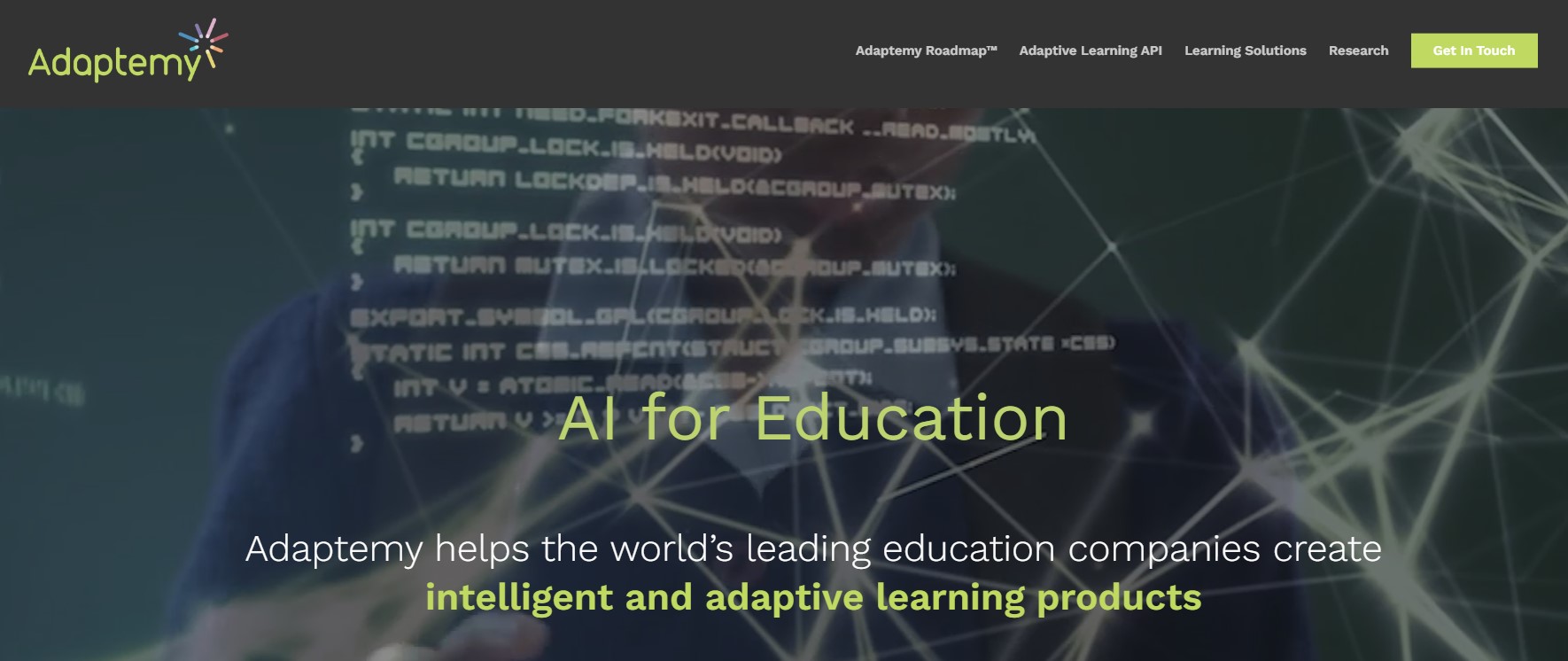What is Adaptive Learning Tech and Education?
READ WHOLE ARTICLE
The way people study is continuously evolving. Instant access to data significantly transforms how, when, and where they gain knowledge. Many educational institutions and companies have recently applied adaptive learning technology empowered by artificial intelligence.
In this article, we’ll describe a new personalized approach you may use to create unique and interesting lessons.
Table of Content
Adaptive learning platform - what is it?
Top 5 adaptive learning websites
Key advantages of adaptive education
The evolution of learning: the MPS opinion
Adaptive learning platform - what is it?
Let’s imagine a group of students or employees attending offline courses and learning one topic after another in a strictly determined schedule. If one of the participants gets stuck on solving a particular task in the class, there might be no time for the teacher who studies 25 people simultaneously to provide immediate help. As a result, the topic for one individual can remain uncovered, making it very difficult to fully grasp the material. Such students may become frustrated and more likely to lose confidence in their abilities in future tasks.
An advanced strategy may turn the described scenario into the opposite. Instead of feeling upset and disoriented, trainees will get a helpful hint or video instruction to help unblock them and move further. Unlike one-size-fits-all approaches, adaptive learning technologies develop a personalized educational experience suitable for students’ needs, the rhythm of progress, and current skill levels.
Custom-focused tools use data and apply different methods, like artificial intelligence (AI), to test the trainees' performance, engagement, and gaps in knowledge. The content is compiled in real time to better match the students’ understanding and pace. Thus, while one person will be presented with the original lesson within a course, the second one can be redirected to additional resources, and the third will be puzzled with practice activities.
Top 5 adaptive learning websites
Whether you are looking for a trustworthy method to train employees or need an efficient platform for educational establishments, you need the right tool for an excellent outcome. Explore five popular sites that will address your requirements.
Cogbooks

This adaptive learning software is a low-cost, well-designed product with excellent usability for tutors and students. It delivers high-quality materials to everyone who requires them just in time. Regardless of the educational form (in a classroom or online), it enhances users’ outcomes, providing personal 1:1 support.
The Cogbooks application contributed to a 24% increase in productivity and a 90% decrease in dropouts. The program is maintained on the AWS cloud service, providing unlimited storage space for personal projects. Its interface looks like textbooks but in online mode, smoothly adjusting to every customer at every stage of their educational journey.
Knewton

“Start where you are. We’ll take you where you want to go”. This slogan of the developers’ team reflects the best adaptive learning software's primary purpose. Based on in-depth customer behavior analytics, the app suggests which content a student should stick to or skip. Knewton determines the most efficient material and engaging methods of its representation for further updating and improvement. During the last seven years, around 23 educational institutions have already implemented this enterprise solution.
EdApp

This mobile-friendly adaptive learning system has multiple AI-based features for efficient and comfortable training. Brain Boost automatically builds custom quizzes to check the assimilation process for every student. Questions are compiled from the course materials but focus primarily on topics trainees didn’t get right. EdApp also applies gamification in e-learning to diversify the educational process and make it more exciting for users. Reporting and analytical features help customers receive detailed information.
The app is also advantageous for teachers with its AI Create mode. Instructors can compile courses in a few minutes by providing the necessary topics to the app. The platform automatically creates subtopics, picks suitable images, and compiles tests.
Pearson Interactive Lab

Meet one of the examples of adaptive online learning platforms that help trainees get knowledge from the simulation of real-life events. Users will receive the correct answers to their questions, master new skills, and practice them in a digital environment with minimum risk.
Pearson Lab encourages users to make conclusions from their mistakes, build hypotheses, and enhance decision-making. This tool may be used to train workers in such spheres as engineering, construction, healthcare, emergency, and others.
Adaptemy

If you already have corporate educational products but are thinking of personalized learning development, consider Adaptemy. You may integrate this innovative solution into your own environment and improve the quality of the corporate training. The app helps curators to better understand their employees by gathering and analyzing personal achievements in studies. Adaptemy allows companies to react to trainees’ demands and quickly address them. As a result, you get a powerful teaching tool and enhanced user performance.
Smart Sparrow

While developing an adaptive mobile learning system, researchers from Australia concluded that sometimes online education turns students and instructors off. That’s why they decided to include more in-person experience in their platform. With valuable content, Smart Sparrow offers assistance in constructing educational maps and hands-on lessons following the customers' feedback.
Key advantages of adaptive education
The development of mobile adaptive learning environments mixed with AI can discover new opportunities for businesses and higher education. First, it offers a personalized training path based on customers' current performance and mastery in the appropriate field and preferred studying style.
Apps analyze customers’ data in real-time, making it possible to correct the course when needed for better assimilation. The technology provides reliable content, increases retention, reduces study time, and supports regular assessments and feedback.
With gamification elements and quizzes, training becomes more engaging for users, helping them focus on data and absorb it faster. All this impacts productivity and enhances total results.
Nowadays, adaptive learning websites are a must-have for corporations that want to thrive and gain flexibility in a highly competitive market with rapidly changing demands. They fit well for business growth due to scalability, data-based features, dynamism, and affordability.
The evolution of learning: the MPS opinion
Today’s online learning replaces offline and is becoming more individual. Educational courses slightly move from one-fit-all concepts to more flexible ones, considering each user's peculiarities. New approaches help trainees create their own learning path, not interrupting other participants.
One of the adaptive learning benefits is the ability to uncover personal potential for both - tutors and students. Revealing their power, individuals become more self-confident and independent of relying on their strengths and, what's crucial - understanding that their skills matter. This encourages people to act and apply received knowledge in practice, which impacts their environment - school, the workplace, or even everyday life.
In modern realities, people do not want to waste any spare minutes. So mobile devices have become rescuers for most of them regarding education. That’s why we face increased demand for top-notch learning apps and other innovative digital tools.
MPS company realizes the growing need for ed-tech products and offers a wide range of services, including adaptive learning app development. An expert team can turn any ideas into working products and help improve educational processes right where and when needed.

FAQ
What is adaptive education, in simple words?
It’s a data-driven methodology for grasping new materials and concepts. It focuses on a detailed analysis of users’ behavior for customizing resources or activities they receive in the process rather than on the teaching style (visual, auditory, or kinesthetic).
What refers to adaptive ed-tech?
It’s a set of digital tools that solves “five Ws.” It defines what trainees are and which material they need to study, identifies where they stopped to receive new knowledge, when they may face difficulties, and why. Adaptive learning platforms correct courses by suggesting hints, quizzes, and additional information. And most importantly, it allows students to break the limits they face while using various teaching styles.
How does adaptive differ from traditional e-learning?
Formal teaching models offer customers the same material, style, schedule, and speed. Instead, custom algorithms alter the material based on previous experience, performance, and other personal measurements. It’s not a one-fit-all solution; even the same topic may be presented differently to several learners.
Does adaptive learning have weaknesses?
If clients stick to adaptive-only and online-only courses, they may feel lonely in their educational voyage. Using this methodology with other approaches, such as offline meetings with the instructor, is essential. While focusing on personal needs and problem-solving, adaptive learning does not overload lesson content crucial for long-term deep studying.
Adaptive learning examples revealed
Adaptive ed-techs mostly use AI tools to divide data into bite-sized topics, monitor trainees’ progress, send feedback, or make suggestions for instructors on correcting their content. Videos, augmented reality features, and gamification methods may also be used to create a learning app and improve customer performance and efficiency.
Conclusion
Let’s summarize the main line of the guide. What is adaptive learning in education? It’s a method of delivering a custom training experience that addresses the personal needs of a learner by just-in-time responses, resources, and pathways. Unlike teachers in classrooms, this methodology can effectively ensure instant response to dozens or hundreds of students (depending on the number of customers involved). This innovation significantly speeds up the time required for knowledge assimilation, encourages trainees to continue their studies, and substantially increases the overall productivity of the process.
We’ve become familiar with a few adaptive learning technology examples, like EdApps, Knewton, and others. Depending on the instructors' and students' goals, you may pick a suitable app or contact the MPS team to develop a custom platform according to your requirements.

36 Kings Road
CM1 4HP Chelmsford
England


